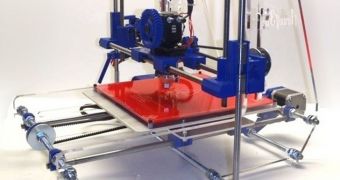3D printers started out as large, unruly things, but that's not really a problem when you have a large space to put them in, along with an associated storage area and room to maneuver. Schools and colleges are actually planning for it now.
Even though it's still an emerging technology, 3D printing has begun to truly excite everyone when present, and discourage them when absent.
Which is to say, some students already feel themselves at a disadvantage when their school or campus doesn't have a 3D printer available. All this despite the fact that it's really, really rare for that to be the case.
Madiha Kotb, president of ASME (American Society of Mechanical Engineers), also feels that colleges and universities should really get a move on and integrate 3D printing into their activities.
Some are heeding the call, preparing 3D printing spaces. Examples are University of New Hampshire, University of Alabama and the University of Illinois at Urbana-Champaign.
According to Venky Venkatachalam, professor and associate dean at the University of New Hampshire's business school, the university has recently acquired a 3D printer and has already stirred interest among students not only in the business school, but also in the liberal arts, law, science and engineering.
Meanwhile, 53 students from the University of Alabama have been trained in the use of 3D printers, while the University of Illinois at Urbana-Champaign has set up the Illinois MakerLab, which has received 1,000 visitors, give or take, since it was opened last year, in winter.
All in all, ASME feels that 3D Printing is one of the few technologies that can really transform life, business and the global economy as a whole. No wonder people, from students to professors, have started feeling disadvantaged when they don't have access to it.
"3D printing has important implications for research advancements - it'd be definitely wise for schools to have this equipment," said Neil Sethi, senior at Emory University.

 14 DAY TRIAL //
14 DAY TRIAL //